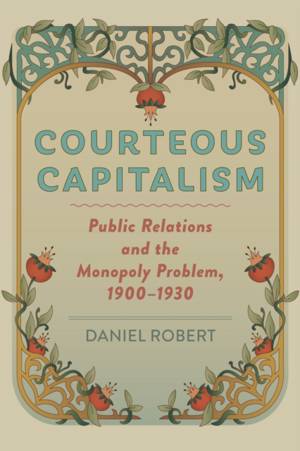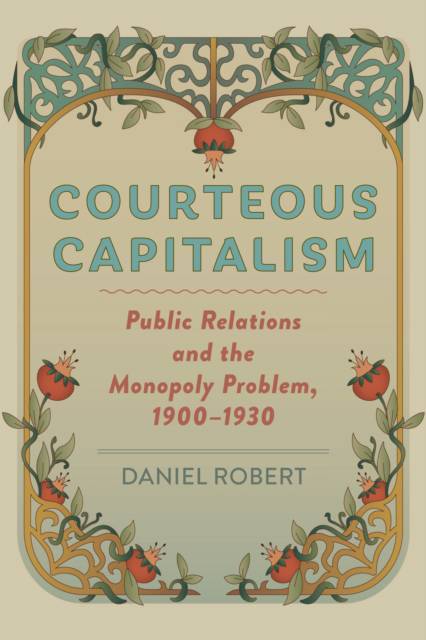
- Retrait gratuit dans votre magasin Club
- 7.000.000 titres dans notre catalogue
- Payer en toute sécurité
- Toujours un magasin près de chez vous
- Retrait gratuit dans votre magasin Club
- 7.000.0000 titres dans notre catalogue
- Payer en toute sécurité
- Toujours un magasin près de chez vous
Description
A provocative history of how corporate titans in the 1920s used a massive public relations campaign to transform public opinion on big business.
In the early twentieth century, as Americans erupted in righteous indignation over the flagrant abuses of big business, utility executives faced an existential crisis. With calls for strict regulation or outright government ownership of utilities, how could streetcar, electricity, and telephone executives thwart municipal ownership, rein in regulation, and secure huge profits?
In Courteous Capitalism, Daniel Robert reveals how utility executives answered this question by launching the largest nongovernmental public relations campaign the nation had ever seen. In part, this campaign encouraged managers to compel their clerks to exude "courtesy," "sunshine," and "patience" toward customers. Rather than bribe the few, executives would convert the many using a combination of emotional labor and improved customer service. At the same time, executives organized the widespread manipulation of the press, schools, radio, and movies.
At once a labor history of clerks and a social history of consumers, Courteous Capitalism offers an intriguing new argument for why a major reform goal of Progressives faded and why Americans changed their minds regarding corporate monopolies.
Spécifications
Parties prenantes
- Auteur(s) :
- Editeur:
Contenu
- Nombre de pages :
- 336
- Langue:
- Anglais
- Collection :
Caractéristiques
- EAN:
- 9781421447346
- Date de parution :
- 28-11-23
- Format:
- Livre relié
- Format numérique:
- Genaaid
- Dimensions :
- 152 mm x 229 mm
- Poids :
- 662 g

Les avis
Nous publions uniquement les avis qui respectent les conditions requises. Consultez nos conditions pour les avis.






